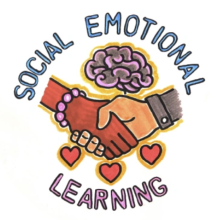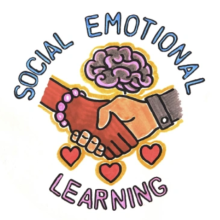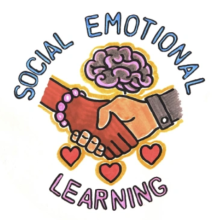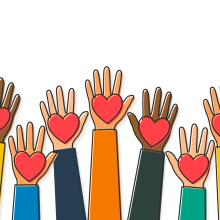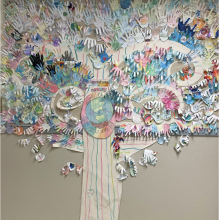Social Emotional Learning (SEL) is the process of acquiring the competencies to recognize and manage emotions, develop caring and concern for others, establish relationships, make responsible decisions, and handle challenging situations effectively. SEL competencies comprise the foundational skills for positive health practices, engaged citizenship, and school success (CASEL, 2013). Recent research has determined that effective SEL in schools significantly improves students’ social-emotional skills, attitudes about self and others, and social interactions.
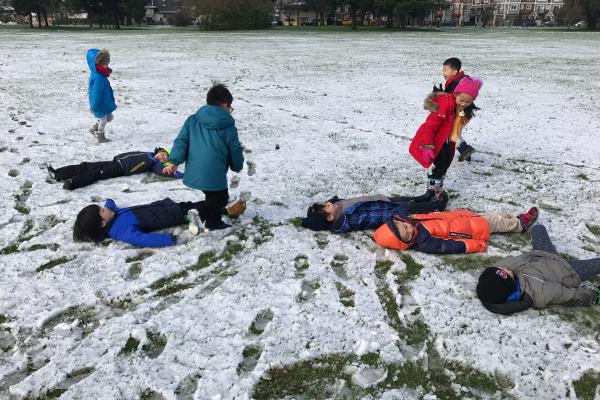
Educating the mind without the heart is no education at all.
Aristotle
Why are we focusing on Social Emotional Learning?
In order to manage our complex and busy world and live vibrant and rewarding lives, students need to learn how to manage information, emotions, and relationships. We are focussing on Social Emotional Learning to develop students’ competencies in understanding themselves and others in our school environments and to develop their ability to apply these competencies in life beyond school.
What learning and actions are we doing?
Social Emotional Learning includes a number of competencies: self-awareness, self-management, social awareness, relationship skills and responsible decision-making. Social and Emotional Learning (SEL) has long been recognized as a critically important factor in education that support students’ personal, social, and academic success and well-being. SEL aligns with BC Curriculum’s Core Competencies, and our teachers continue to build their understanding of current practices of SEL, as it works in schools and in in their classrooms. Several Innovation grants were attached to SEL:
Pagination
- Page 1
- Next page
How will we know we are making enough of a difference?
Our learning about social emotional learning continues to develop. At this time, we are aware that students who are learning in environments that pay attention to SEL are developing resiliency and self-regulation skills. As part of our commitment to developing students’ and educators’ SEL learning, we will engage with students and schools with SEL Innovation Inquiry teams to ask questions, review samples of learning, and collect feedback. Examples of how we are making a difference will be updated annually below:
Pagination
- Previous page
- Page 2
- Next page
Additional Supports for Students
The Richmond School District is committed to creating safe, caring, and respectful schools. In 2012, the BC Ministry of Education developed the ERASE https://www2.gov.bc.ca/gov/content/erase strategy to help guide these efforts. ERASE aims to foster school connectedness, address bullying, prevent school violence, and provide support during critical incidents across all school districts. The Mental Health in Schools Strategy (2020) is a collaboration between health and education, and provides a vision and pathway for mental health promotion in the B.C. K-12 education system. The B.C. Curriculum K-12 includes learning standards throughout Career Education and Physical and Health Education that focus on personal development and healthy decision making. Our collective goal is to ensure all students enjoy a safe school culture and learning environment.
What happens when any adult in the school notices a student in distress?
- Staff engage with the student to ensure their immediate safety and well-being.
- School Administrators are informed so they can initiate problem-solving and coordinate wrap-around care for the student, involving parents and families.
- If mental health and/or substance misuse is a concern, students are connected to school counseling services, which may provide direct support or facilitate connections to appropriate district services or community agencies.
How do students access personal, social, and emotional help in schools?
- Each secondary school has a team of school counselors who support students. All students have access to these counselors and the safe spaces of the counseling offices within the school.
- Elementary school students are supported by area counsellors. Referrals to the area counsellor are coordinated at the school level and involve communication with parents and families.
- If a student requires additional support, counselors liaise with parents and families and may facilitate connections to appropriate district services or community agencies.
